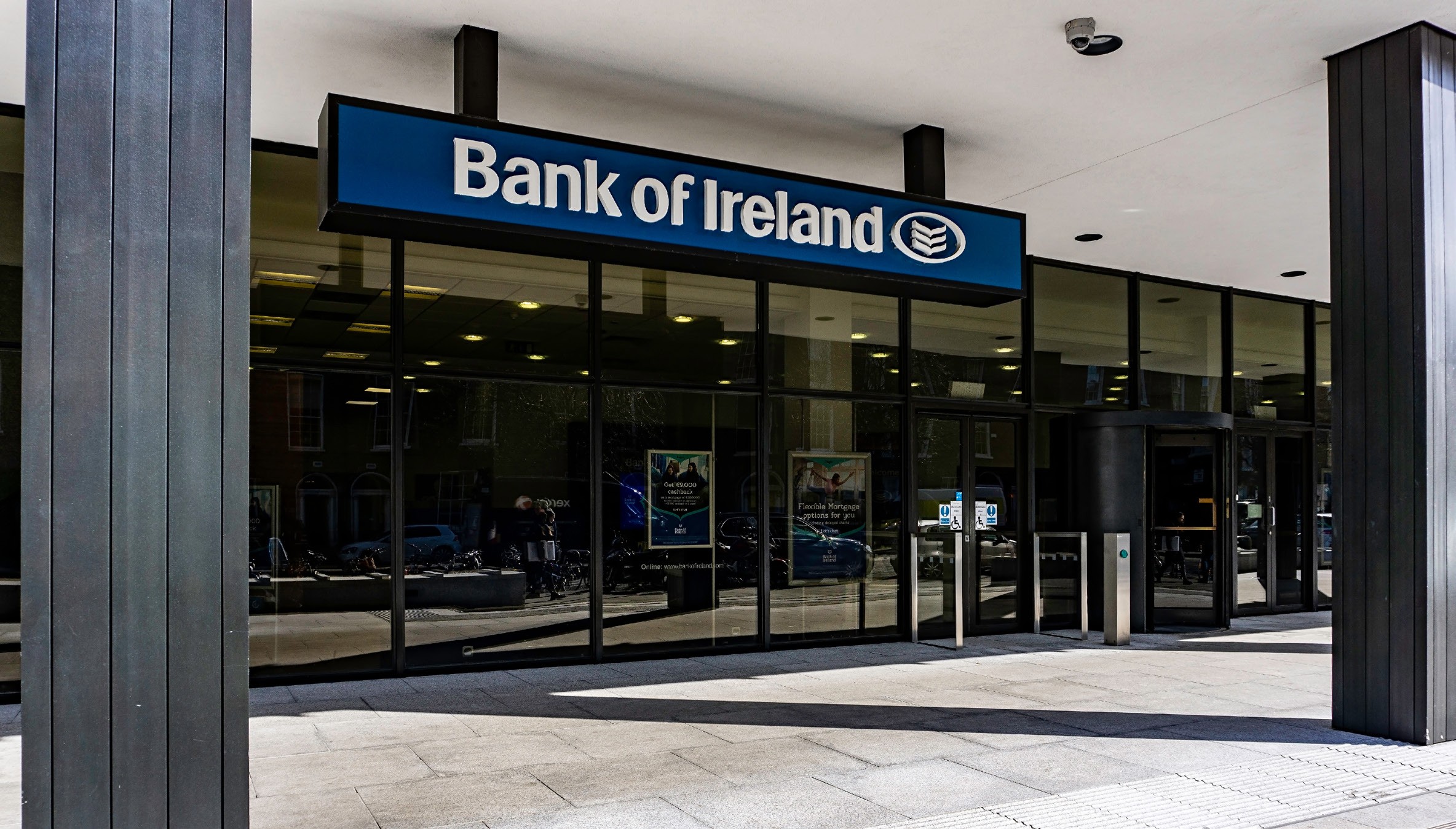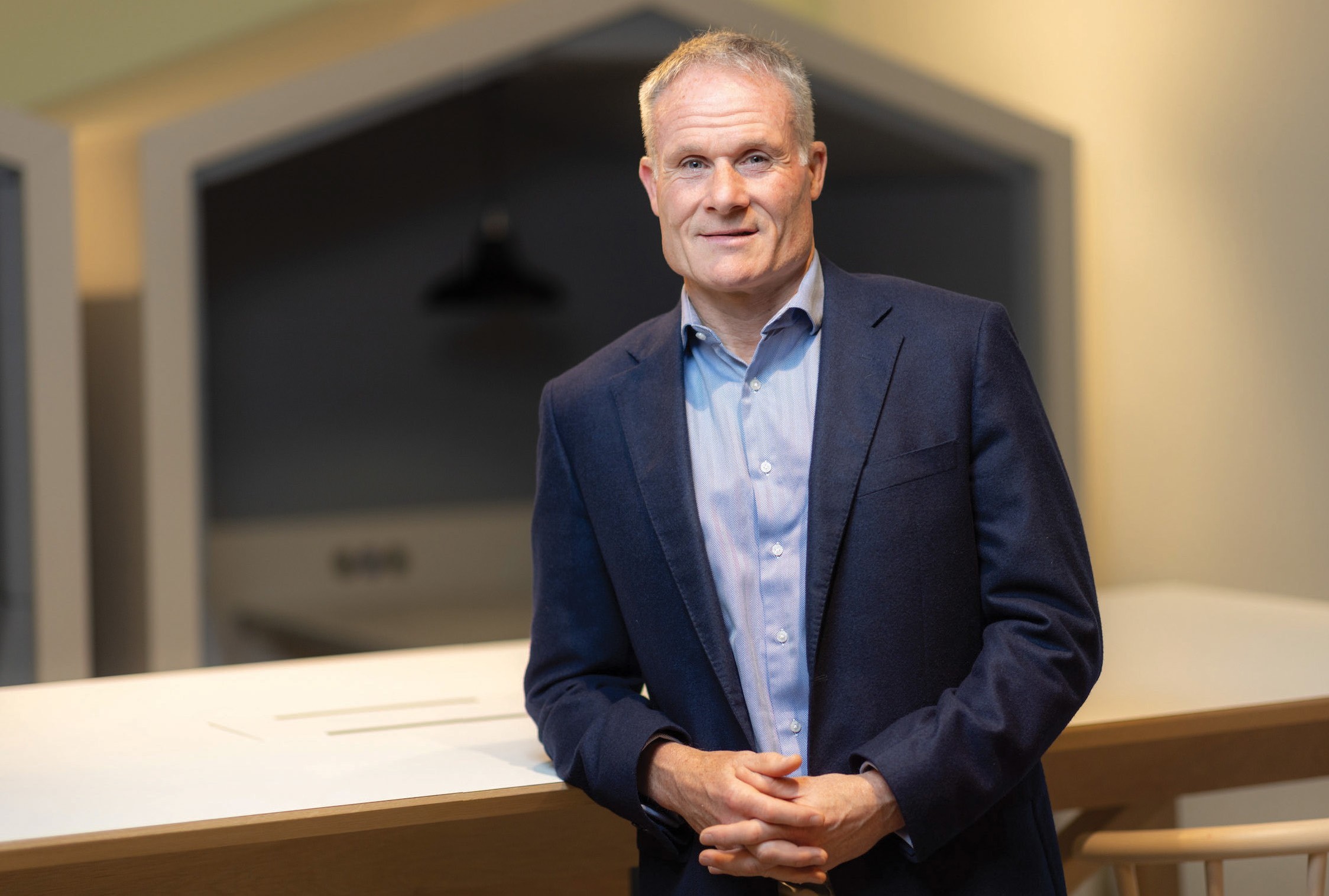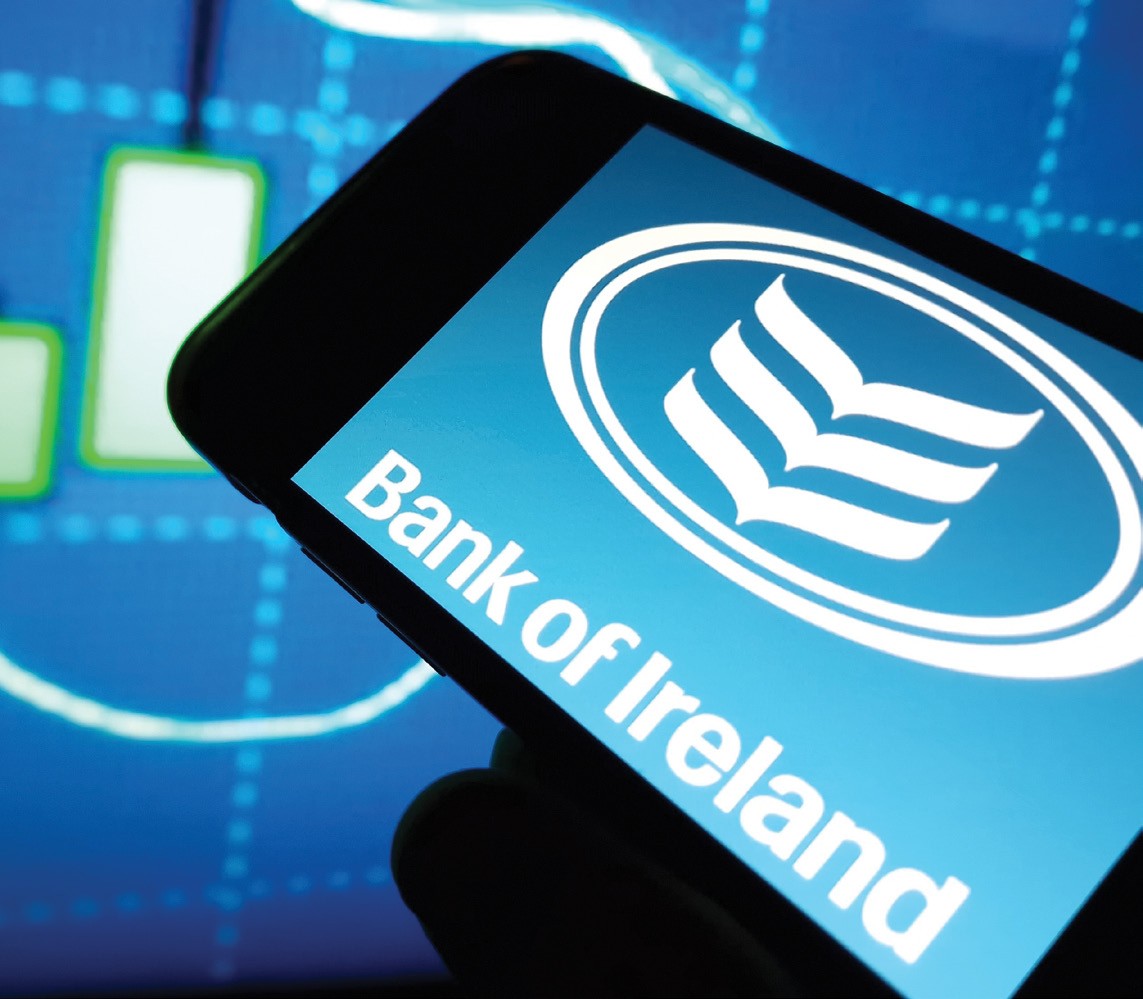“Our acquisitions have put us in a unique position in the Irish market”
Bank of Ireland’s Mark Spain, FCA, discusses plans to future-proof the country’s oldest bank in response to shifting market trends

Mark Spain, FCA, is Group Chief Financial Officer and Executive Director with Bank of Ireland. As the bank prepares to unveil its new three-year strategy, Spain outlines its evolving market position, strategic priorities and plans for the years ahead.
QAs Group Chief Financial Officer with Bank of Ireland, you play a key role in leading one of Ireland’s largest financial institutions. Tell us about the career path that brought you here?
I studied business at UCD, qualified as a Chartered Accountant with KPMG and almost immediately decided I wanted to get into corporate finance.
Just as I was finishing my training contract, I came across Barbarians at the Gate, a book about private equity, mergers and acquisitions (M&A) and hostile takeovers in the US in the eighties. It piqued my interest, so I wrote to IBI Corporate Finance, an M&A advisor in Ireland at the time, operating as an independent unit of Bank of Ireland.
That led to my first job in corporate finance. I started with IBI in 1994, stayed for a few years and then decided I wanted to see a bit of the world.
I spent a couple of years with Guinness (now Diageo) in London, then returned to IBI in 1998 and stayed with them for 20 years, working on some really interesting deals—Denis O’Brien’s Eircom bid, the merger between Jury’s and Doyle hotel group and C&C’s Tayto disposal. I joined Bank of Ireland Group as Head of Investor Relations in 2013 and became Group Financial Controller three years later, with responsible for reporting, planning and budgeting.
My next move brought me back to the UK in a strategic commercial role with the group over there, and I was appointed Chief Strategy Officer in 2019.
That was an interesting role. In 2022, the bank returned to full private ownership as the Irish government reduced its shareholding to zero.
That same year, we completed our acquisition of Davy and, a few months later, we finalised the acquisition of KBC’s performing loan assets and deposits.
I played a key role in executing both transactions, working with the Board, engaging with regulators and negotiating counterparty deals. That led to the opportunity to become Group Chief Financial Officer in March 2022.

QTalk us through the group’s evolution since you joined in 2013: how much has Bank of Ireland changed in the last 12 years?
Our business model has changed quite a lot since 2013. At that stage, I would say we were more akin to a mortgage and savings bank.
We had bought New Ireland, our life and pensions business, in the late nineties, which made us the only bank assurer in Ireland.
But the Davy and KBC acquisitions were transformative. The KBC business gave us more scale and operational efficiency.
The Davy deal built out a gap in our portfolio in high net-worth advisory and wealth management.
Those acquisitions put us in a unique position in the Irish market. Looking at our product offering today, there are no obvious gaps in our portfolio.
We know we have to continue to evolve constantly, however—to be agile and responsive to what’s going on in the wider market.
Our competitor set has changed over the past decade and that keeps us on our toes.
Today, we’re competing with more than 20 different institutions, including traditional banks, specialist lenders and deposit gatherers, and fintechs. I think this competition is a good thing from a societal perspective.
QWhat customer trends in the Irish market are top of the agenda for Bank of Ireland currently?
Obviously, we are all navigating the headwinds blowing across the Atlantic right now but, if you stand back
and look more broadly at Ireland today versus 10 years ago, it is a wealthier country overall.
There are areas we need to address, and a rising tide doesn’t lift all boats, but there is a sizable cohort of people who have accumulated significant wealth.
They are at, or close to, the stage where they can draw down their pensions and they are thinking about how to manage the wealth captured in those pensions.
We see significant potential here because of our unique market position, so wealth today is a more prominent part of our business than, say, 10 years ago.
And we are performing well. Last year, Davy had record net inflows of nine percent, so we have strong momentum. These franchisees puts us in a good position to attract customers on the wealth management side and build long-term relationships.

QIreland is facing some significant challenges, particularly in the area of housing supply. How are you responding to this?
I am always conscious of the need to ensure we generate appropriate returns on the capital invested across our business but—as a large institution employing over 10,000 people—we have an equally important responsibility to contribute to key societal needs.
Our focus is on supporting Government priorities and there is strong cultural drive among Irish people to own our own home. Home ownership is important to us.
Our role as a material lender is to support developers building homes and customers buying homes.
Currently, we are supporting the construction of 21,000 homes on about 220 sites around the country and, last year, we helped 14,000 of our customers buy a new home. Our share of the mortgage market in Ireland stands at about 40 percent.
In the past 12 months, we have revamped our mortgage offering, introducing an innovative eco-saver product which supports the green transition by rewarding customers for improving the energy footprint of their property.
The higher their Building Energy Rating, the greater the discount they can get on their mortgage rate.
QTalk us through some of the other strategic priorities for Bank of Ireland currently?
We are in the final year of our current strategic plan and already working on our new three-year cycle.
A key focus for us is considering how we can simplify how we operate.
Bank of Ireland is over 240 years old but no matter how deep our roots, we always have to be agile and responsive.
We have an opportunity to examine how we do things— the processes and practices that build up naturally over time in a large organisation—and to challenge ourselves to identify more efficient alternatives.
It is an opportune time to consider simplifying the organisation because we are generating attractive returns.
We reported a pre-tax profit of €1.9 billion for 2024. Our new three-year strategy will focus on future-proofing the business and optimising what we have.
QWill this simplification drive focus mainly on technology?
We will look at areas where we can reduce manual interventions to improve the customer journey for both personal and business customers.
Customer preferences have evolved enormously since I joined Bank of Ireland, and our transactional interactions are now largely technology led.
Our mobile app serves as our biggest ‘branch’. This is where most of our customers engage with us, and it’s how the majority of our customers want to engage.
Our customer satisfaction rates are strong—our Net Promoter Score for 2024 rose by 11 points and complaints fell 21 percent. This is something we want to maintain so we plan to refresh our app later this year.
We are always looking at ways to innovate and improve the customer experience, but technology is also transforming the way we operate internally.
In my own finance function, for example, we are upgrading our general ledger and introducing a sub-ledger, which gives us access to real-time information.
This means we can spend less time reconciling and data mining and instead focus on adding value by interpreting the information to help guide the business.
QTalk us through how you approach your role? What works for you in terms of balancing priorities and responsibilities, and leading with purpose?
“I have a really great team. I have an open-door policy and also schedule one-to-ones every couple of weeks, just to catch up and keep track of what’s going on.
“I also enjoy meeting our customers. It gives me access to what is going on the frontline; to what our customers are thinking and how they are responding.
“I try to take time to reset, typically at the weekend, and look ahead to what I need to do in the week ahead: What do I need to prioritise? How should I divide my time? Who do I need to engage with and how?
“Judgement is very important in my role—deciding how best to manage competing priorities on an ongoing basis.
“Resilience is equally important. In this role, as much as any other, I try to push myself; to put myself in situations that might not be familiar or comfortable, because I think that’s really how you really learn.”